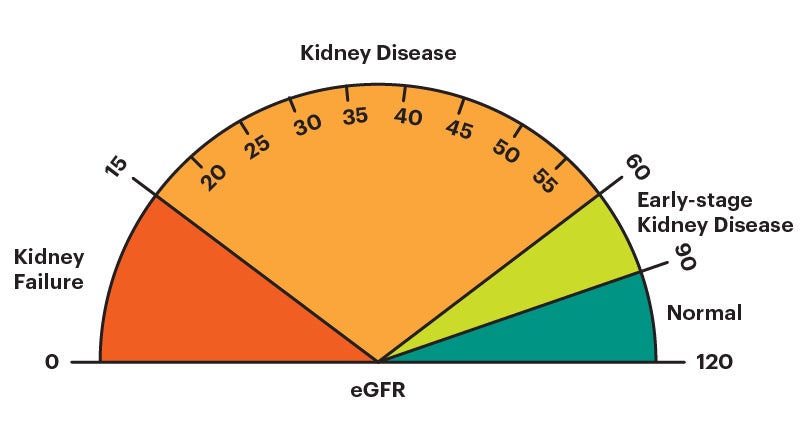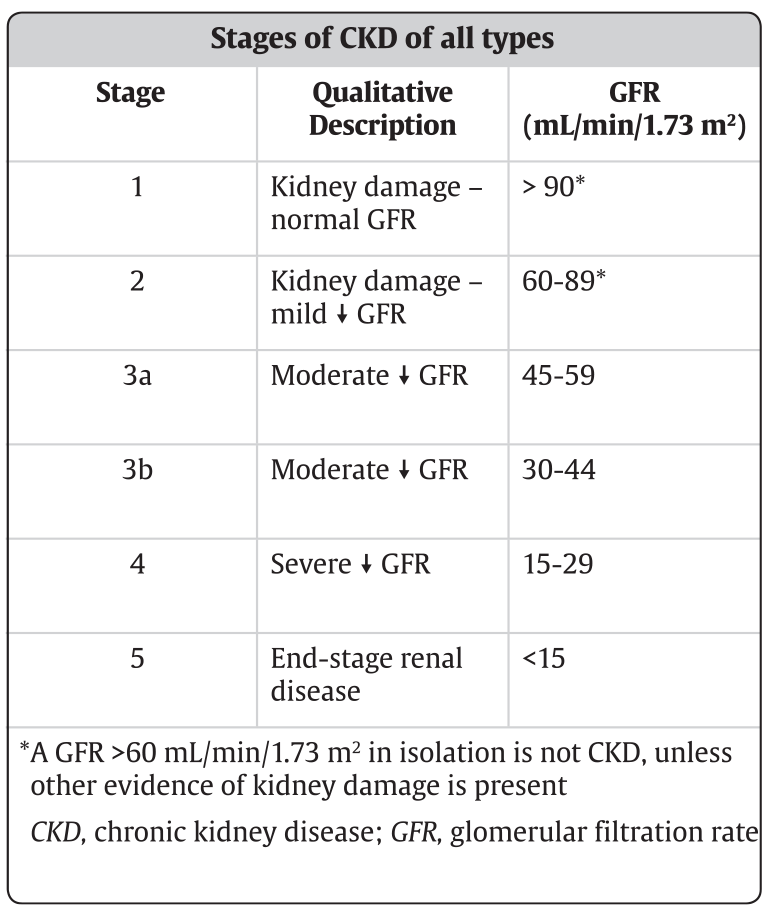My eGFR is 59 ml/min, does this mean I have CKD? How concerned should I be?
It depends [“how did we know you were going to say that?” CKDEx Ed].
An eGFR of 59 ml/min puts you (just) in Stage CKD3A (see table below). This is usually a mild kidney problem. So rule number one: don’t panic.
Get it rechecked
The first thing to do is to repeat the test. GFR (and the blood creatinine on which it is based) are not that reliable. And if you were slightly dehydrated on the day of the test, it can easily be wrong by a factor of 20%. Also the chemical test in the laboratory could have been faulty on the day.
If repeated, and it still at this level (and stable), again you don’t need to panic. You don’t (necessarily) need to see a nephrologist (specialist kidney doctor) at this point. A bit of background first. What are the stages of CKD?
CKD Stages
These are the 5 stages (with stage 3 split into two) in the CKD classification, which are based on something called an estimated GFR (eGFR) (normal is 90-120 mls/min).
eGFR is a blood test which estimates the level of function of the kidney. It does not mean it is the kidney function.
GFR is in turn is based on the blood creatinine level. The lower creatinine and CKD stage, and higher the GFR, the better.


When should I worry about CKD3A? Does it always progress?
CKD does not always progress. Thinking that is does, is a common false belief. But for some patients, it does slowly ‘progress’ – i.e. worsen, from a mild problem (CKD3A) to kidney failure (CKD5) that is life-threatening.
So, if your CKD is not progressing (worsening), it may not be a huge concern. But if it is progressing to CKD4 or 5, then, yes, it is a concern; as dialysis and/or a kidney transplant is possible one day.
Importance of age and rate of decline
It is not just about the level of kidney function (and stage). The age of the patient and rate of decline are often more important than the number. Only then can a doctor understand whether it has significant meaning.
For example, a 29 year old with CKD1 (creatinine 64 mcmol/L, i.e. normal) that progresses to CKD3B (creatinine say 108, high-normal) in 6 months, is of more concern to a doctor than and 89 year old with stable CKD4 (creatinine 254).
Summary
We have answered the question ‘My eGFR is 59, does this mean I have CKD?’ Yes (just). Even though it may mean not very much, it is important to repeat it soon. In terms of its interpretation, your age and rate of decline of GFR are important as well. We hope it has been helpful.
Other resource
At what stage should you see a nephrologist?
When should I worry about CKD?
Last Reviewed on 14 June 2024
